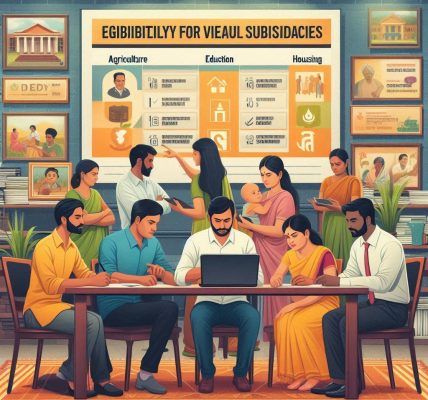Education is one of the cornerstones of personal and societal development. As the demand for advanced learning and research grows, many students and scholars often face financial barriers when pursuing their academic and research goals. Thankfully, governments, private organizations, and educational institutions worldwide offer education and research grants to help ease this burden. These grants play a significant role in making education more accessible, promoting innovation, and fostering intellectual growth across various disciplines.
In India, a number of funding opportunities exist for students and scholars, ranging from undergraduate and postgraduate studies to doctoral research. These grants are aimed at supporting education and encouraging groundbreaking research that benefits society at large. This blog will explore various types of education and research grants available in India, how to apply for them, and why these funding opportunities are crucial for students and scholars.
What Are Education & Research Grants?
Education grants are financial awards that support the costs associated with academic programs, including tuition fees, books, research materials, and other expenses related to education. These grants are typically awarded based on merit, need, or specific areas of study.
Research grants, on the other hand, are designed to support scholars and researchers in their work. They help cover the costs of research materials, data collection, lab work, and even fieldwork. Research grants often come from government bodies, universities, and private organizations interested in advancing knowledge in specific fields.
Both types of grants are highly competitive and provide crucial financial assistance, allowing students and researchers to focus on their work without the stress of financial constraints.
Importance of Education & Research Grants
The importance of education and research grants cannot be overstated, especially in today’s competitive academic world. Here’s why they are so significant:
- Financial Support: Education grants help students afford the cost of tuition, study materials, and other academic expenses. For researchers, grants provide the funds necessary to carry out research without financial distractions.
- Encouragement of Innovation: Research grants fund studies that could lead to new technologies, medical breakthroughs, or social innovations. They provide the necessary resources for scholars to push the boundaries of knowledge in their respective fields.
- Increased Access to Higher Education: Many deserving students might otherwise be unable to pursue higher education due to financial limitations. Education grants make higher education accessible to students from diverse backgrounds, promoting inclusivity in learning.
- Fostering Academic Excellence: Education and research grants incentivize students and scholars to excel in their academic pursuits. By removing the financial burden, students can focus on their studies or research without worrying about external pressures.
Types of Education & Research Grants in India
In India, various government agencies, private organizations, and educational institutions offer funding for education and research. Below are some of the prominent grants available to students and scholars:
1. National Scholarship Portal (NSP)
The National Scholarship Portal (NSP) is an initiative by the Government of India to provide scholarships and grants to students across various levels of education. This platform hosts a wide range of scholarships for students pursuing school education, undergraduate, postgraduate, and professional courses.
Key Features of NSP Grants:
- Eligibility: Available to students from economically weaker sections, minority communities, and those pursuing courses in specific fields.
- Types of Grants: Includes merit-based scholarships, need-based grants, and special scholarships for students from Scheduled Castes (SC), Scheduled Tribes (ST), and Other Backward Classes (OBC).
- Application Process: Students can apply online through the NSP portal, providing required documents such as academic records, income certificates, and bank details.
2. UGC Research Grants
The University Grants Commission (UGC) provides research grants for scholars pursuing research at the postgraduate and doctoral levels. UGC’s research grants are vital for students and researchers working in fields such as science, technology, humanities, and social sciences.
Key Features of UGC Research Grants:
- Eligibility: Available for students pursuing MPhil or PhD degrees in recognized universities.
- Types of Grants: Includes research fellowships, travel grants, and financial assistance for conducting research.
- Application Process: Scholars must submit a research proposal along with their academic credentials. UGC reviews the proposals and provides grants accordingly.
3. Indian Council of Social Science Research (ICSSR) Grants
The Indian Council of Social Science Research (ICSSR) offers research grants to scholars engaged in social science research in India. These grants are aimed at promoting high-quality research that addresses critical issues in society.
Key Features of ICSSR Grants:
- Eligibility: Available for researchers in the field of social sciences, including economics, sociology, political science, and anthropology.
- Types of Grants: Includes major research projects, travel grants, and short-term fellowships for scholars.
- Application Process: Researchers need to submit detailed research proposals and budgets to ICSSR for consideration.
4. Department of Science and Technology (DST) Research Grants
The Department of Science and Technology (DST), under the Ministry of Science and Technology, provides funding for research in scientific and technological fields. DST grants are awarded to students, researchers, and institutions working on innovative projects with potential real-world applications.
Key Features of DST Grants:
- Eligibility: Available for researchers and students in the fields of science, technology, engineering, and mathematics (STEM).
- Types of Grants: Includes research fellowships, innovation grants, and funding for collaborative research projects.
- Application Process: Researchers submit detailed proposals through the DST portal or through recognized institutions.
5. DST-Innovation in Science Pursuit for Inspired Research (INSPIRE) Scholarship
The INSPIRE Scholarship is an initiative by the Department of Science and Technology (DST) to encourage young minds to take up science and research. The scholarship offers financial support for undergraduate and postgraduate students in the field of science.
Key Features of INSPIRE Scholarship:
- Eligibility: Awarded to students from Class 12 and above who have an interest in science.
- Amount: Provides financial support for students to pursue undergraduate and postgraduate studies in science.
- Application Process: Students can apply online through the INSPIRE portal.
6. Dr. Manmohan Singh Scholarship for Foreign Students
The Dr. Manmohan Singh Scholarship is a prestigious scholarship for international students who wish to pursue higher education in India. This scholarship supports students in fields related to education, technology, and research.
Key Features of Dr. Manmohan Singh Scholarship:
- Eligibility: Available to foreign students pursuing graduate, postgraduate, and doctoral programs in India.
- Amount: Covers tuition fees, accommodation, and living expenses.
- Application Process: Applications are processed through the Ministry of External Affairs and partner institutions.
7. Corporate and Private Scholarships
Many corporate organizations and private foundations offer scholarships and grants to students and researchers. These grants are typically awarded in fields such as business, engineering, medicine, and arts.
Examples of Private Scholarships:
- Tata Trusts Scholarship
- Aditya Birla Group Scholarship
- Reliance Foundation Scholarships
These private organizations often provide funding for both undergraduate and postgraduate education and may also support research initiatives.
How to Apply for Education & Research Grants?
Applying for education and research grants typically requires a few essential steps:
- Identify the Right Grant: Research various scholarships and grants to find one that aligns with your academic or research goals. Each grant has different eligibility requirements, so it’s crucial to choose the one that fits your profile.
- Prepare Your Documents: Gather necessary documents such as academic transcripts, recommendation letters, research proposals, proof of income, and other supporting materials.
- Submit Your Application: Complete the application form, attach all the required documents, and submit your application through the relevant portal or institution.
- Wait for Results: After submitting your application, the selection process begins. If selected, you will receive funding and further instructions on how to utilize the grant.
- Utilize the Funds Wisely: Once awarded a grant, ensure that you use the funds as intended, whether for tuition fees, research materials, or other educational purposes.
Benefits of Education & Research Grants
- Financial Relief: Grants significantly reduce the financial burden of education and research, allowing students and scholars to focus on their work.
- Encourages Academic Excellence: Grants incentivize students and researchers to pursue excellence in their academic and professional endeavors.
- Career Advancement: Research grants help scholars build a strong foundation for a career in academia or industry by funding innovative research projects.
- Promotes Social Impact: Many grants focus on projects that address societal issues, contributing to the greater good.
Conclusion
Education and research grants are invaluable resources for students and scholars looking to pursue their academic and research aspirations. Whether you’re an undergraduate student, a postgraduate scholar, or a researcher working on an innovative project, there are numerous funding opportunities available to help you achieve your goals.
By understanding the various types of grants and following the proper application processes, you can access the financial support you need to succeed. The importance of these grants goes beyond just financial assistance—they play a pivotal role in shaping the future of education, research, and innovation in India and beyond.
If you’re looking to further your academic or research career, take advantage of these opportunities, and start applying for grants today!




